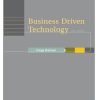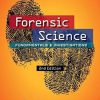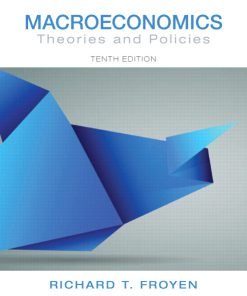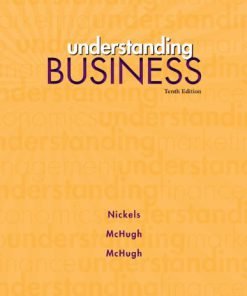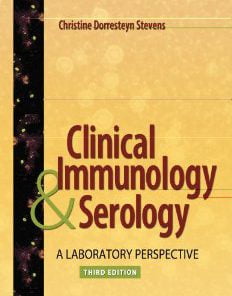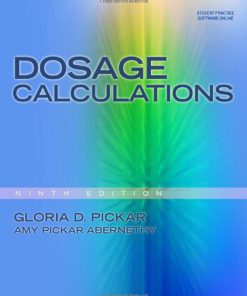Test Bank Professional issues in Nursing Challenges and Opportunities 3rd Edition Huston
$35.00 Original price was: $35.00.$26.50Current price is: $26.50.
Test Bank Professional issues in Nursing Challenges and Opportunities 3rd Edition Huston
This is completed downloadable of Test Bank Professional issues in Nursing Challenges and Opportunities 3rd Edition Huston

Product Details:
- ISBN-10 : 1451128339
- ISBN-13 : 978-1451128338
- Author: R.N. Huston, Carol J.
Using an approach that fosters critical thinking and values clarification, this textbook examines the full range of professional issues facing contemporary nursing. Coverage includes critical issues such as the nursing shortage, mandatory staffing ratios, violence in nursing, legal and ethical issues, plus the latest HIPAA regulations, career advancement and evaluations, and best practices for today and the future. This edition includes two NEW chapters: 1) a NEW chapter on developing effective leaders to meet 21st century healthcare challenges, and 2) a NEW chapter on the use of residencies for new graduate nurses as a transition to practice. In addition to these exciting additions, content has been updated throughout the book to reflect cutting-edge trends in healthcare including the impact of healthcare reform, and recommendations from the Institute of Medicine (IOM). This edition promises to be an integral tool to providing effective nursing care in an increasingly global, rapidly changing, technology driven world.
Table of Content:
Chapter 2
1. A nursing instructor is describing benchmarking to a group of students. Which of the following would the instructor include in the description?
A) The process of translating research findings into useful interventions for practice
B) Identification of the business methods of successful companies to use their approach as the gold standard and replicating and refining those methods
C) The use of evidence-based statements by practitioners and patients to make high-quality decisions in specific health care situations
D) A statistical tool used to determine the validity of evidence-based approaches to decision making
Ans: B
2. Which of the following would be important for a nurse to keep in mind when preparing to implement an evidence-based approach to care?
A) Need for integration of best research evidence with clinical expertise and patient values in making decisions about the health care of patients
B) Use primarily by health care members who have achieved graduate degrees and advanced training in research techniques
C) Necessity of significantly more time and expense for implementation than simply following best practices
D) Lack of appropriate opportunities for patients to have input into decision making about their care
Ans: A
3. Which of the following strategies best supports the creation of an organizational culture that promotes the identification and implementation of evidence-based practice?
A) Nurses are given incentives such as time off from their shift to go to the facility’s library to consult with the librarian about accessing possible studies.
B) The designation of a specialized title for nurses who have been positively singled out by patients in hospital patient-satisfaction surveys
C) Nurses are instructed not to deviate from established policies and procedures in performing care so as to reduce personal and institutional legal liability.
D) A free child-care service is created within the hospital so that nurses are able to work additional shifts without the stress of finding high-quality child care.
Ans: A
4. Which of the following best reflects the accountability of health care providers today related to evidence-based practice?
A) Showing that the care they provide is the least expensive option that meets minimum required outcomes
B) Knowing and following the best-practice standards in place at the time they completed their initial licensure examination for entry into their profession
C) Having knowledge of and implementing the most effective and reliable evidence-based approaches to care
D) Conducting research to determine what constitutes best practices in the institution in which they work
Ans: C
5. Which of the following questions would be most appropriate for a nurse to ask in the spirit of looking for opportunities to improve nursing practice and patient outcomes through evidence-based practice?
A) How many patients can the average nurse care for on a medical-surgical hospital unit before quality of care is compromised?
B) Should nurses join professional associations to foster unity within the profession?
C) Which medical supply company offers the greatest price discount on high-volume purchases of IV tubing?
D) What continuing-education courses am I most interested in for self-renewal?
Ans: A
6. When reviewing a research article, the nurse notes that a randomized controlled trial (RCT) was used. The nurse needs to keep in mind that this type of research
A) Is often considered the gold standard of clinical research evidence
B) Yields very limited evidence regarding the results of several similar studies
C) Is the most common research methodology used in nursing studies
D) Is more commonly a tradition-based approach
Ans: A
7. A nurse uses the National Guideline Clearinghouse as a resource based on the rationale that this source
A) Conducts best-practices clinical research on diseases with the highest morbidity and mortality in the United States
B) Offers providers practice guidelines developed through systematic searches and reviews of research literature and scientific evidence
C) Provides consumers with report-card-type information about a provider’s credentials and malpractice records
D) Is the most significant “Protocol for Practice” published by the American Association of Critical Care Nurses
Ans: B
8. Which of the following strategies is most appropriate for the new nurse to use in promoting evidence-based best practices?
A) Using the institutional policy and procedure manual as the primary resource for clinical problem solving
B) Seeking out current, established sources of evidence in his or her area of specialty practice
C) Adhering to long-established nursing traditions, symbols, and interventions
D) Role-modeling behaviors and actions of experienced nurses who have been practicing for some time
Ans: B
9. Which of the following would the nurse identify as a potential barrier to implementation of evidence-based practice?
A) An increasing number of nurses educated at the graduate or doctoral level
B) Institutional support for research activities and researchers
C) The high degree of technical information that is often difficult to understand
D) Confidence that the nursing staff has the skill set needed to conduct research
Ans: C
10. After teaching a group of students about evidence-based practice and approaches, the instructor determines that additional teaching is needed when the students identify which of the following as an example of evidence-based practice?
A) Integrative reviews
B) Meta-analyses
C) Institutional standards
D) Randomized control trials
Ans: C
11. As part of the preparation for implementing an evidence-based practice intervention on a nursing unit, an in-service program is being done. Which of the following would the presenter cite as the overall goal of this intervention?
A) Cost-effectiveness
B) Enhanced professional credibility
C) Increased work efficiency
D) Improved patient outcomes
Ans: D
12. A nurse involved in research for evidence-based practice is evaluating the effects of an intervention with that of another intervention using a limited population. The nurse is engaged in which of the following?
A) Randomized control trial
B) Integrative review
C) Practice-based evidence for continuous process improvement
D) Meta-analysis
Ans: C
13. A nursing staff wants to implement an evidence-based intervention on the unit. Which of the following would the staff need to do first?
A) Collaborate with a research mentor.
B) Get support from the administration.
C) Seek out the medical librarian.
D) Contact the professional nursing organization.
Ans: B
14. During an orientation group, a new nurse asks the advanced practice nurse about ways to promote evidence-based practice. Which of the following suggestions would be least helpful?
A) “Stay true to the nursing traditions because these are essential to practice.”
B) “Subscribe to several professional journals and read them for information.”
C) “Check for sources of evidence already out there so you don’t reinvent the wheel.”
D) “Don’t stick to just one source of evidence, use multiple sources.”
Ans: A
15. A nurse is looking for critiques of existing nursing research studies. Which of the following sources would be most helpful?
A) Cochrane Collaboration
B) National Guideline Clearinghouse
C) Agency for Healthcare Research and Quality
D) Worldviews on Evidence-Based Nursing
Ans: D
16. After teaching a class about benchmarking and institutions considered to be national leaders in evidence-based nursing practice, the instructor determines that additional teaching is needed when the class identifies which institution as a leader?
A) University of Iowa
B) University of Chicago
C) Arizona State University
D) McMaster University of Ontario
Ans: B
17. When incorporating new evidence into clinical practice, which of the following is considered essential to achieve successful implementation?
A) Health care institutional review
B) Buy-in from the interdisciplinary team
C) Patient and family support
D) Participation of other nurses
Ans: B
18. When describing the term best practice to a group of students, a nursing instructor would associate this term with which of the following?
A) Shared decision making
B) Clinical expertise
C) Benchmarking
D) Evidenced-based nursing practice
Ans: C
19. A nursing student asks the instructor, “Where does evidence-based practice begin?” Which response by the instructor would be the most appropriate?
A) “It starts with questions that arise in practice settings.”
B) “There really is no actual beginning; it is ongoing.”
C) “Changes in technology are usually the stimulus.”
D) “A physician identifies a problem, which prompts nurses to respond.”
Ans: A
20. After teaching a group of nursing students about evidenced-based practice, the instructor determines the need for additional teaching when the students identify which of the following as a source of evidence?
A) Meta-analyses
B) Quasi-experimental studies
C) Consultation with an experienced nurse
D) Integrative reviews
Ans: C
People Also Search:
professional issues in nursing challenges and opportunities
professional issues in nursing challenges and opportunities 3rd edition
professional issues in nursing challenges and opportunities 3rd test bank download pdf
Related products
Test Bank
Test Bank for Clinical Immunology and Serology A Laboratory Perspective, 3rd Edition: Stevens


